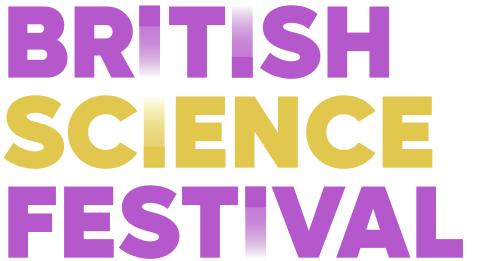By Martha Kirby – Head of Policy and Public Affairs, British Science Association
Last month, I travelled to Liverpool to take part in the British Science Association’s annual British Science Festival, hosted by University of Liverpool and Liverpool John Moores University.
Over the Festival, there were more than 115 free events covering everything from a panel discussion with the incoming director of CERN (Mark Thompson), to botany workshops exploring Liverpool’s flora, talks from early career scientists, and even a geology themed dance performance.
Growing up in the North West, I remember being taught about Liverpool’s rich industrial and scientific heritage, from the world’s first passenger train in 1830 to the role of Liverpool scientists in the discovery of the neutron.
Science festivals build on this national legacy, playing a crucial part in our national scientific and cultural life; by linking cutting edge innovation to the communities that they serve. They can inspire young people to explore new ideas, help them to see themselves as scientists, and motivate them to pursue careers in science, technology, engineering and maths (STEM).
This year’s British Science Festival was a brilliant collaboration between Liverpool’s two leading universities, alongside AstraZeneca, a leading employer in the area and our major partner for the British Science Festival, and sponsors Culture Liverpool and Liverpool BID Company. Initiatives like these, between universities and vital regional partners working together, can support regional growth and drive investment, especially in UK Regional Investment Zones.
At a time where we have systemic shortages in the STEM sector, the work of the British Science Association could not be more relevant. Alongside the Festival we run campaigns such as #SmashingStereotypes, which show children and young people that a career in STEM is for everyone.
We also run British Science Week, where we support schools and communities to run activities that get people to explore the science of the world around them.
As we start the new school year, there could not be a more relevant time to discuss the importance of hands-on science education that engages and inspires. At our Festival welcome reception Steve Rotheram, Mayor of Liverpool City Region, highlighted the importance science education plays in regional development:
”Liverpool has always been a place where curiosity and creativity change the world. And this Festival is proof that spirit burns just as brightly today. Inspiring the next generation. Unlocking imagination. And proving that from this region – you can shape the future”.
However, Baroness Brown of Cambridge, the new President of the British Science Association, also spoke of her concerns that children and young people are not getting the scientific education they need to pursue careers in STEM:
”There are too many schools where we haven’t invested in laboratories, where kids… are in schools where they don’t have a physics teacher who did a physics degree… if innovation is going to drive growth, we have to start that by training the scientists and engineers of tomorrow”.
Many young people leave school believing that STEM subjects ‘aren’t for them’. Festivals, like the British Science Festival, offer a fantastic moment to re-engage and spark curiosity in people of all ages.
However, we should be aiming to keep children motivated and inspired to pursue STEM throughout their schooling and onwards into their future careers.
Since joining the British Science Association five months ago, I have been struck by the fact that children, especially those from the most disadvantaged backgrounds, are missing out. They have fewer opportunities to participate in practical science, the lack of dedicated time in the curriculum, and the shortage of specialist teachers, means that many children do not get the opportunities they should.
To realise their ambitions, all children, no matter their background, should have the opportunity to experiment, be curious, and explore the world around them.
Banner photograph by Gavin Trafford – Researchers from the Forensic Research Institute at Liverpool John Moores University guide a British Science Festival 2025 audience at Liverpool’s Black-E venue on how to solve a fictional crime.
